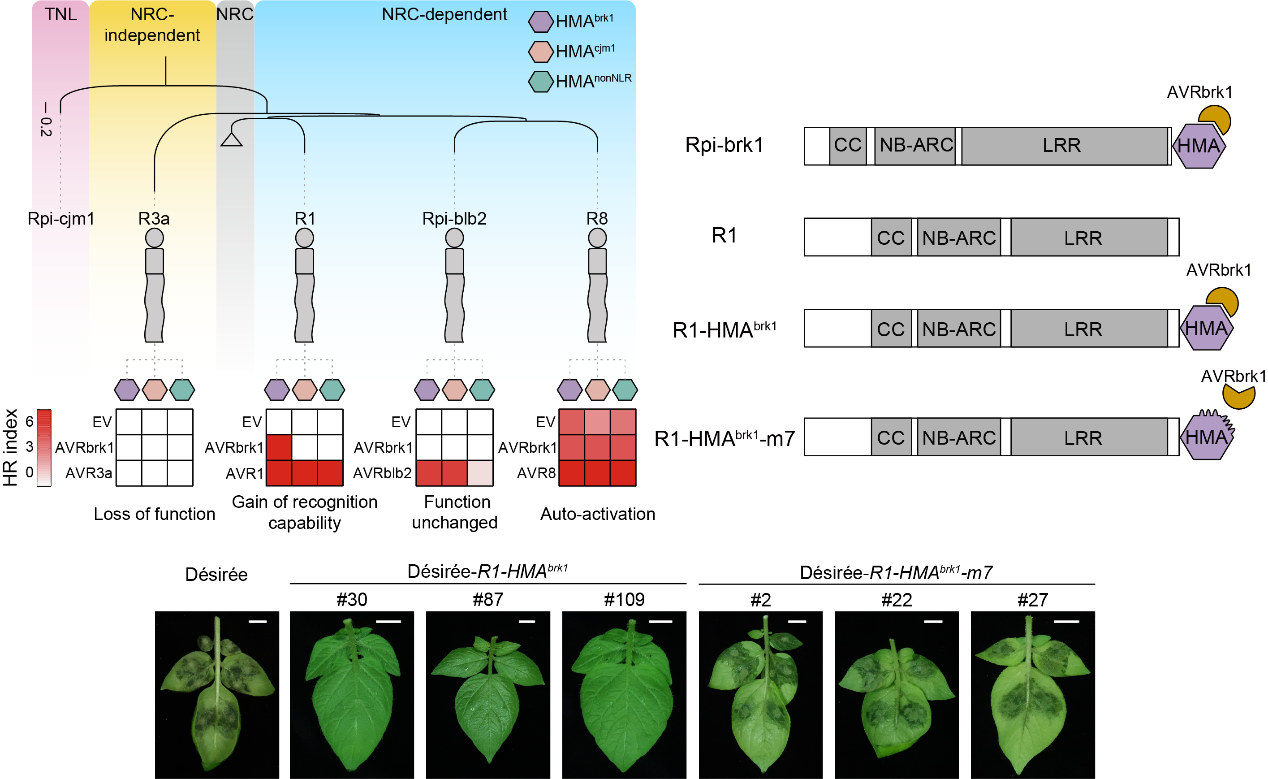Chinese Scientists Achieved New Progress in Potato Disease-Resistance Breeding

Figure.“Plug-in” Strategy Enhances Potato Late Blight Resistance
Supported by the National Natural Science Foundation of China’s Distinguished Research Group Program (Grant No. 32488302), the research teams led by Prof. Sanwen Huang from the Agricultural Genomics Institute at Shenzhen, Chinese Academy of Agricultural Sciences, and Prof. Suomeng Dong from Nanjing Agricultural University have made significant progress in potato resistance breeding. The teams constructed a comprehensive repertoire of potato resistance genes, and revealed the sequence and functional differentiation between the two classes of resistance genes, which elucidated the coevolutionary patterns between these genes and pathogens with different evolutionary potentials. Leveraging comparative and evolutionary genomic analyses, the teams identified three new genes conferring resistance to potato late blight. In-depth mechanistic studies enabled the teams to propose a new resistance breeding strategy, termed “Plug-in”, which opens up new avenues for developing potato varieties with durable disease resistance. This work was published online in Nature on October 30, 2025, under the title “Plug-in Strategy for Resistance Engineering Inspired by Potato NLRome” (https://www.nature.com/articles/s41586-025-09678-5).
Potato late blight, caused by Phytophthora infestans, is among the world’s most devastating crop diseases and is listed as one of the eight major crop diseases in China’s Category I Plant Pests and Diseases Directory by the Ministry of Agriculture and Rural Affairs. Historically responsible for the infamous Irish Potato Famine, late blight continues to cause annual global losses exceeding 10 billion USD. The pathogen’s highly complex and rapidly evolving genome renders most resistance genes short-lived, underscoring the urgent need for new sources of durable resistance gene.
Conventional potato breeding relies on tetraploid cultivars with complex genetic backgrounds, which hampers the effective combination of resistance genes. To overcome these challenges, Huang’s team launched the “U Potato Project”, in collaboration with leading domestic and international institutions. The initiative aims to replace tetraploid with diploid potatoes and use hybrid true seeds instead of seed tubers, fundamentally transforming potato breeding and propagation systems. Late blight resistance breeding is a core component of this initiative.
By precisely annotating the potato genome, the researchers constructed the potato NLRome, encompassing nearly 40,000 resistance genes––the most comprehensive and largest plant resistance gene resource to date. Systematic analyses of these genes provided new insights into their evolution and functional diversification, establishing an evolutionary framework for predicting resistance gene function. Using this resource, the team successfully cloned three novel resistance genes against late blight through comparative and evolutionary genomics.
This study demonstrated that “grafting” the functional HMA domain from the resistance gene Rpi-brk1 onto the C-terminus of the previously ineffective R1 protein restores its resistance function. This work not only elucidates the evolutionary dynamics of potato resistance genes and provides a feasible rapid gene cloning framework, but also, for the first time, introduces a “Plug-in” resistance gene design strategy—a novel conceptual approach for the rapid development of broad-spectrum disease-resistant crops.
Contact Us

National Natural Science Foundation of China
Add: 83 Shuangqing Rd., Haidian District, Beijing, China
Postcode: 100085
Tel: 86-10-62327001
Fax: 86-10-62327004
E-mail: bic@nsfc.gov.cn
